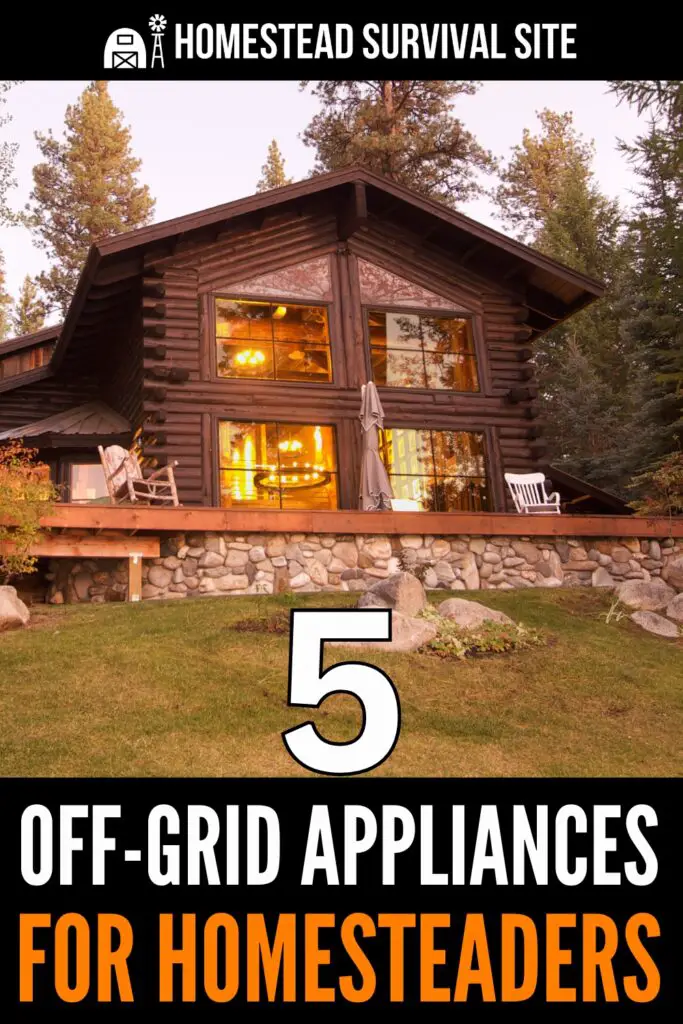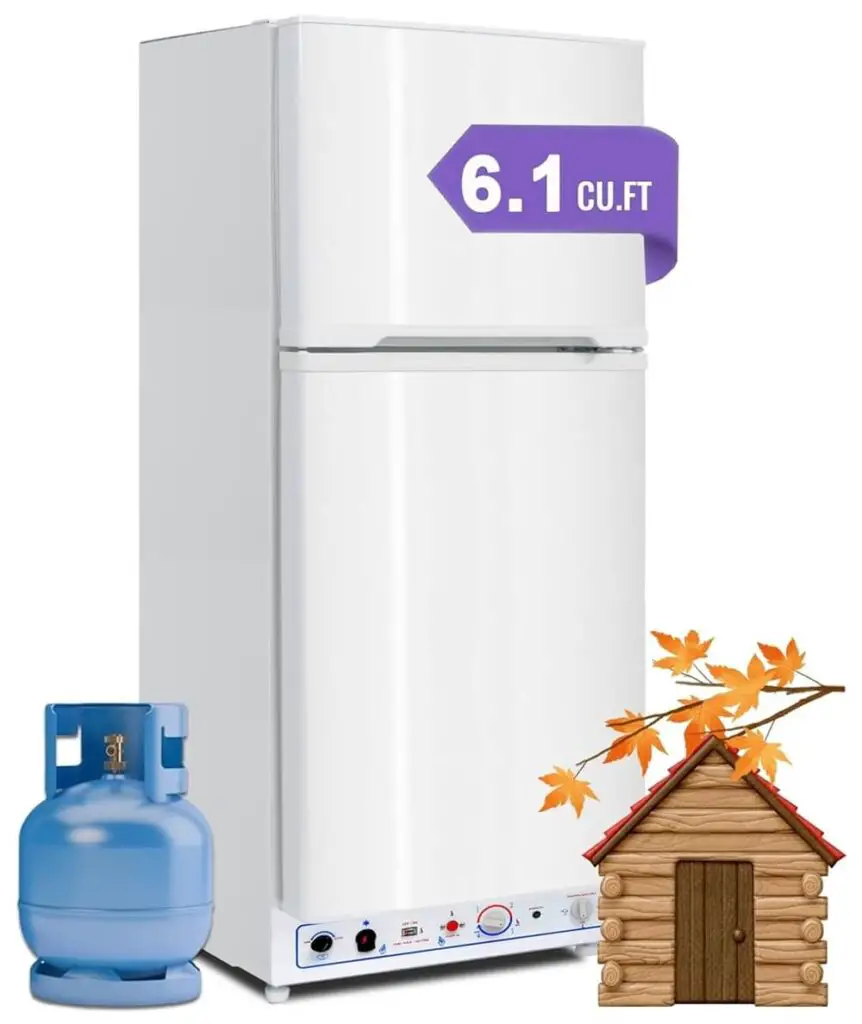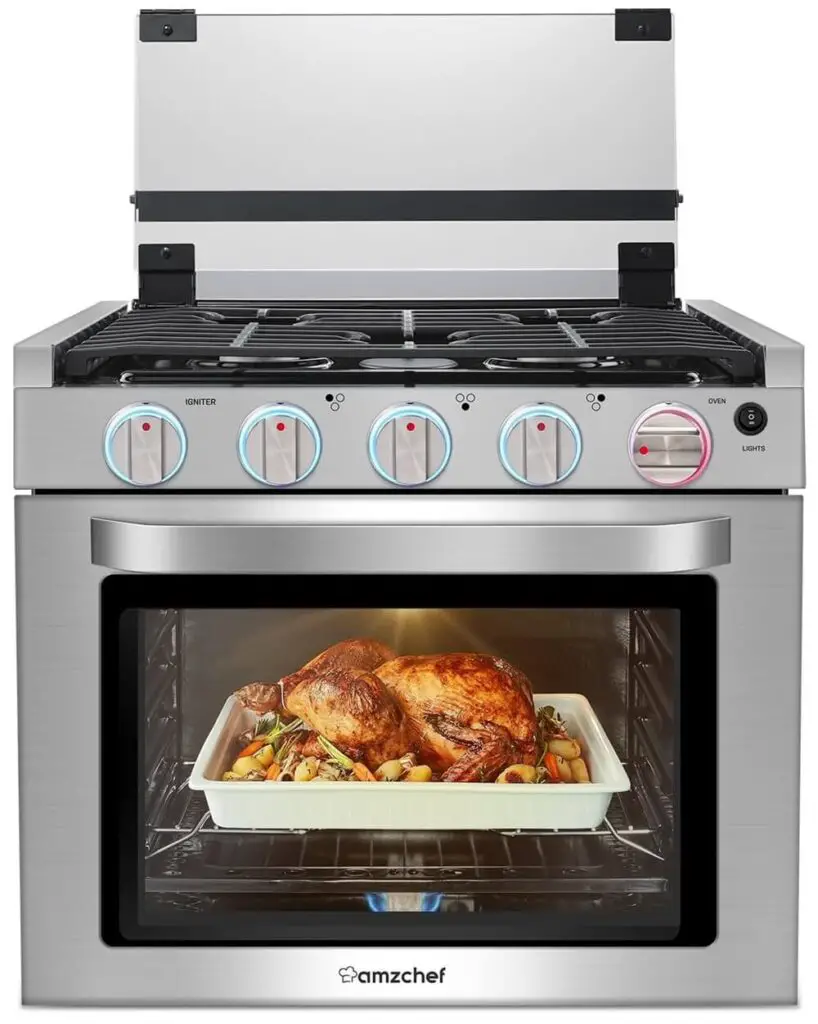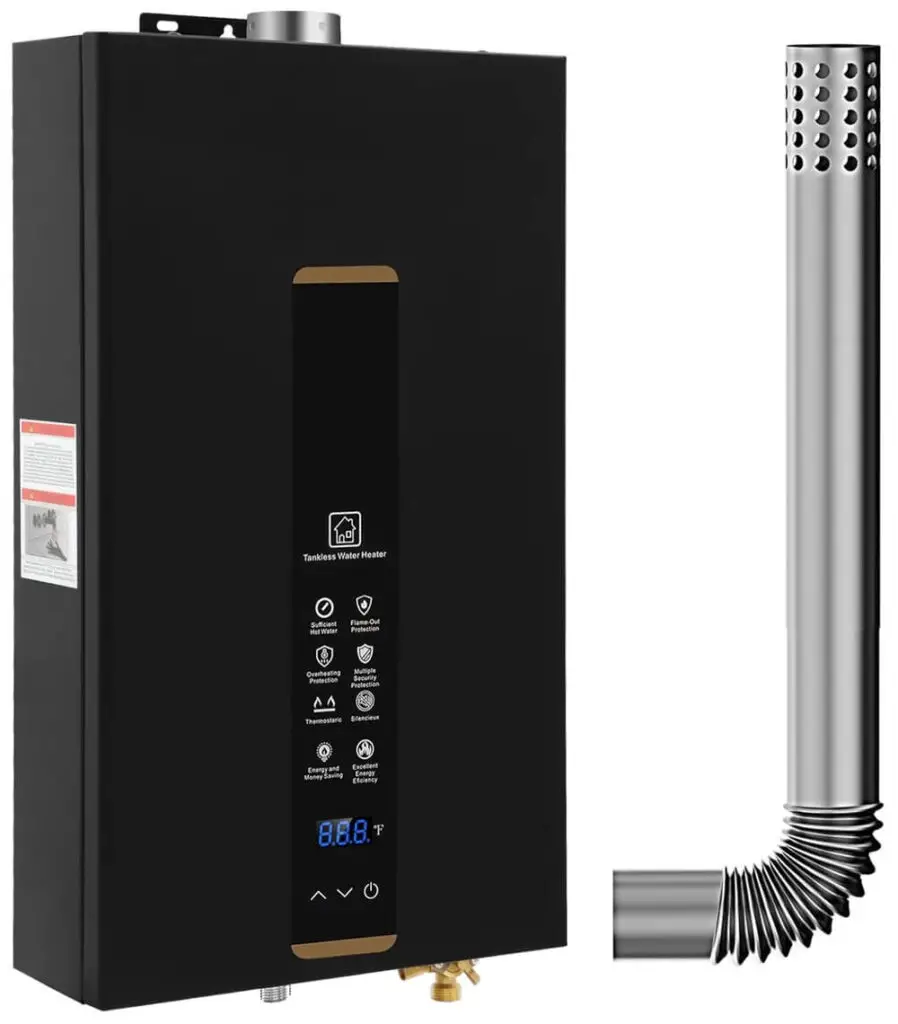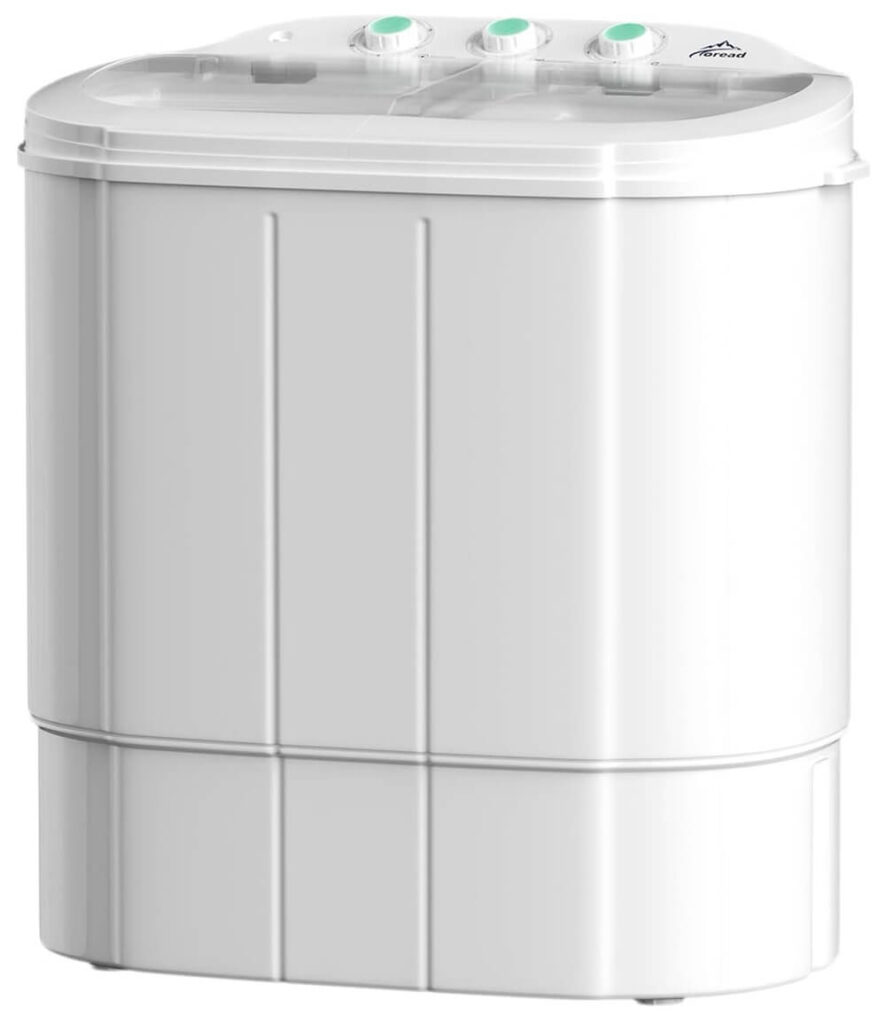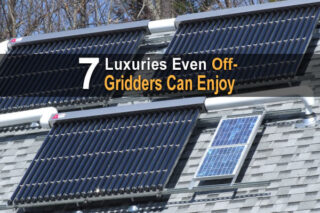Estimated reading time: 7 minutes
Whether you are motivated by the disruption of frequent power outages in your area or the advantages of a self-sustainable lifestyle, you may want to know more about off-grid appliances.
This term applies to low-energy home appliances that you can operate without using municipal power grids. Recent improvements in design and function have led to many off-grid appliances working as well as their traditional counterparts but with significantly less energy use.
In addition, many off-grid appliances are built to last longer than on-grid ones, including having better insulation to withstand temperature extremes. In this article, we’ll take a look at off-grid alternatives for the major appliances we use in our homes.
Want to save this post for later? Click Here to Pin It On Pinterest!
Off-Grid Refrigerators
When the power goes out, one of the first things we worry about is whether the perishable food in the refrigerator will remain safe for consumption. As a result, one of the first off-grid appliance purchases you consider might be a refrigerator.
There are quite a few options to consider, depending on the size of your home, your family, and, of course, your budget. You can choose between conventional fridge-freezer combos and small portable solar coolers, for example.
For refrigerator off-grid power sources, many people narrow things down to propane or solar. Let’s look at some pros and cons.
Using propane has less upfront costs than installing a solar system, but if you’re planning to use solar power for heating and other uses, that negative may not apply to you. However, if your off-grid dwelling is in the woods or another shady location, propane may be a better bet than solar.
On the other hand, a propane-powered fridge requires adequate ventilation and installation by a licensed gas technician is recommended. Propane-powered fridges also may not be able to handle freezing temperatures. Also, generally speaking, propane refrigerators cost more to purchase than solar ones.
Solar refrigerators typically run on 12v/24v DC (direct current) power, and you can hook them up to your generator or battery yourself.
Some portable off-grid refrigerators run using a combination of alternative energy (such as solar or wind) or DC power, with the use of a generator as a backup. Some models come with a solar panel to power the unit.
You can check out some of the many off-grid refrigerator options and their price points here.
Off-Grid Stoves/Ovens
Another kitchen appliance you will want to research is a stove or range-oven combo. Some off-grid folks keep things simple by investing in a cast iron wood-burning cookstove. The advantage of this tried-and-true home addition is that it has the double benefit of heating your home. Cookstoves come in many shapes and sizes, but here is a more traditional option.
Other off-grid stove options use propane LP or natural gas with battery-powered ignition. Here's an example.
Off-Grid Water Heater
A water heater is another home appliance to think about when considering going off the grid. One of the most energy-efficient options is a tankless propane water heater. It only heats water when the hot water valve is opened. If you live in a sunny area, a solar water heater is another energy-efficient possibility.
Keep in mind that operating several of your home appliances – your stove, refrigerator, and water heater – with the same type of energy can be more cost-efficient and convenient than using several different energy sources.
Off-Grid Dishwasher
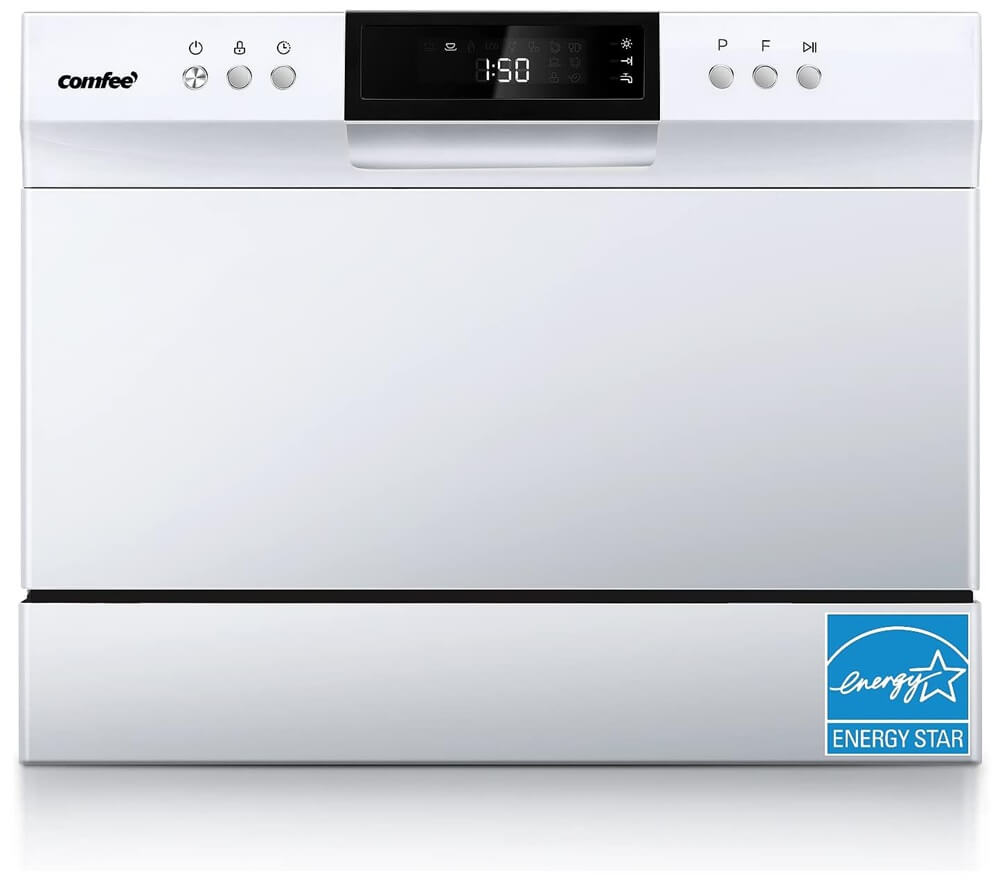
A dishwasher might seem like a luxury for off-grid living, but most dishwashers use less water and energy than washing and rinsing dishes by hand.
Many off-the-grid dwellers choose Energy Star-certified countertop models (like this one) that can be hooked up to the kitchen faucet.
No matter what size you choose, look for models that don’t have a heat drying cycle and then run the machine only when it’s full. Something else to look for on the models is a hot water connection, which allows the machine to use your hot water rather than relying on its own heater.
With something like a dishwasher, pay attention to your overall power levels and any severe weather that may be coming up before using it. For example, it may be better to use more water to wash your dishes by hand than to run out of power during a winter storm.
Off-Grid Washing Machine and Dryer
The most power-hungry appliances in a typical modern home are the washing machine and dryer. Washing and drying laundry by hand when you can is one way to save energy, but you don’t have to forego the convenience of these appliances altogether when you’re off the grid.
Here are some factors to consider for off-grid laundry machines:
- The smaller the model, the less energy it will consume. But you won’t save energy if you’re doing more loads due to the smaller size. Try to find a balance that works in your favor.
- Consider a manual washing machine for small loads. Some use cranks or foot pedals.
- For larger loads, think about a dual washer-spinner that is powered by a portable generator.
- If a bigger washing machine is important for your family, here’s a model to consider.
- Look for washers that have separate hot and cold inlets to save energy.
- And if you want to go really old-school, you can always try an old-fashioned washboard and a basin, especially for cleaning small clothing items.
Making Your Choices
Living successfully off-grid is a learning process. It’s a good idea to seek out other people’s experiences with off-grid appliances by reading online forums and reviews of products before you make a purchase. Hearing someone else’s first-hand stories – both good ones and bad ones – can help you make decisions that are right for your family.
When thinking about what off-grid appliances are best for you, here are the primary factors to keep in mind:
- Your budget
- Your space
- Ease of installation
- Ease of maintenance
- Energy source and energy use
- Your ability to draw power during different weather conditions
Here are some resources for more information.
- The Doable Off-Grid Homestead by Shannon Stonger and Stewart Stonger
- Living Off Grid by Viking Publications of Tennessee
- Off-Grid Living Made Easy by Bush Garrison
- The DIY Off Grid Solar Power Bible by Maxwell Green
- Efficient Off-Grid Refrigerators video by The Ready Life
- Propane Appliances for Off Grid video by An Alaska Homestead
Like this post? Don't Forget to Pin It On Pinterest!
You May Also Like:



